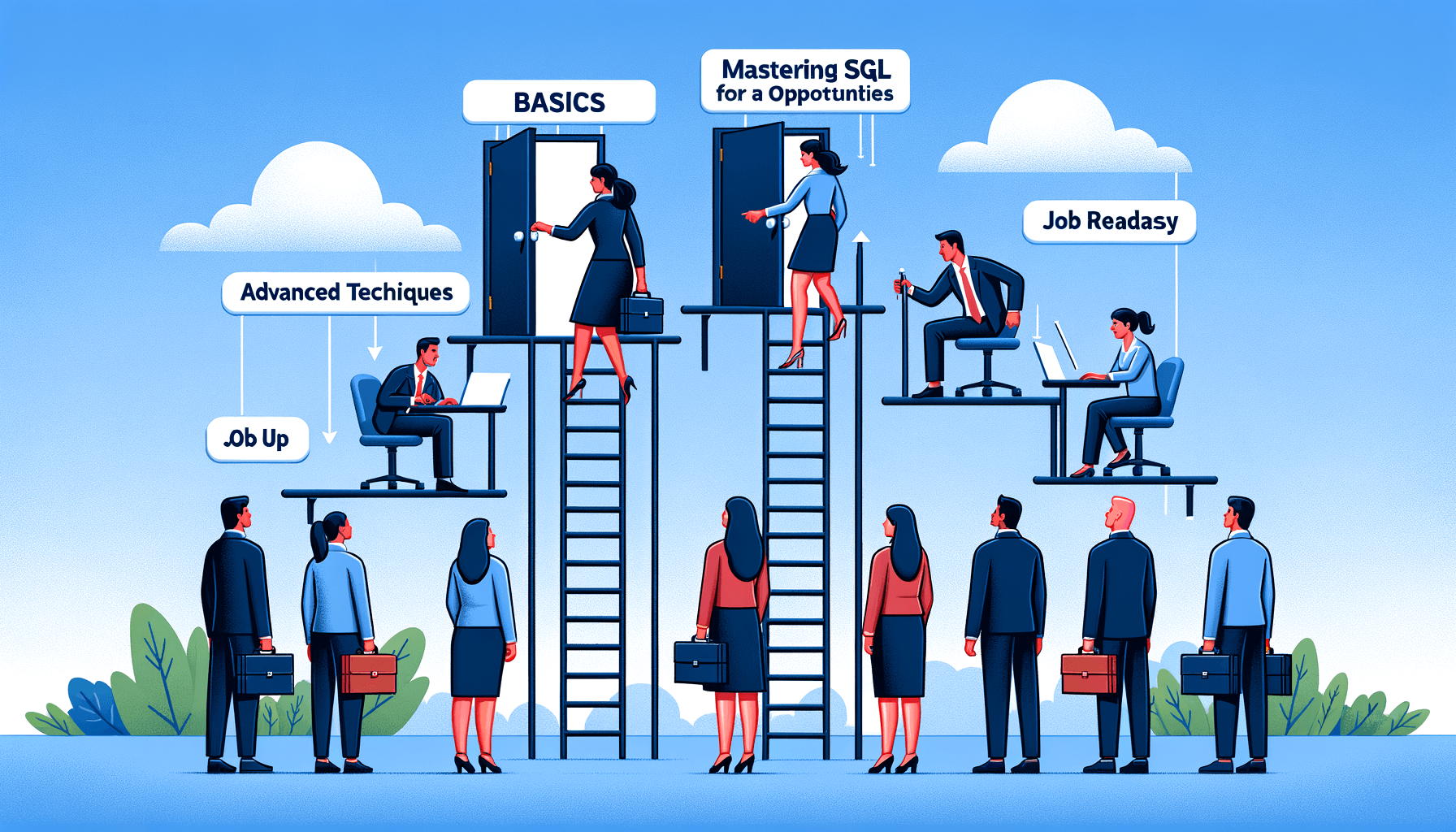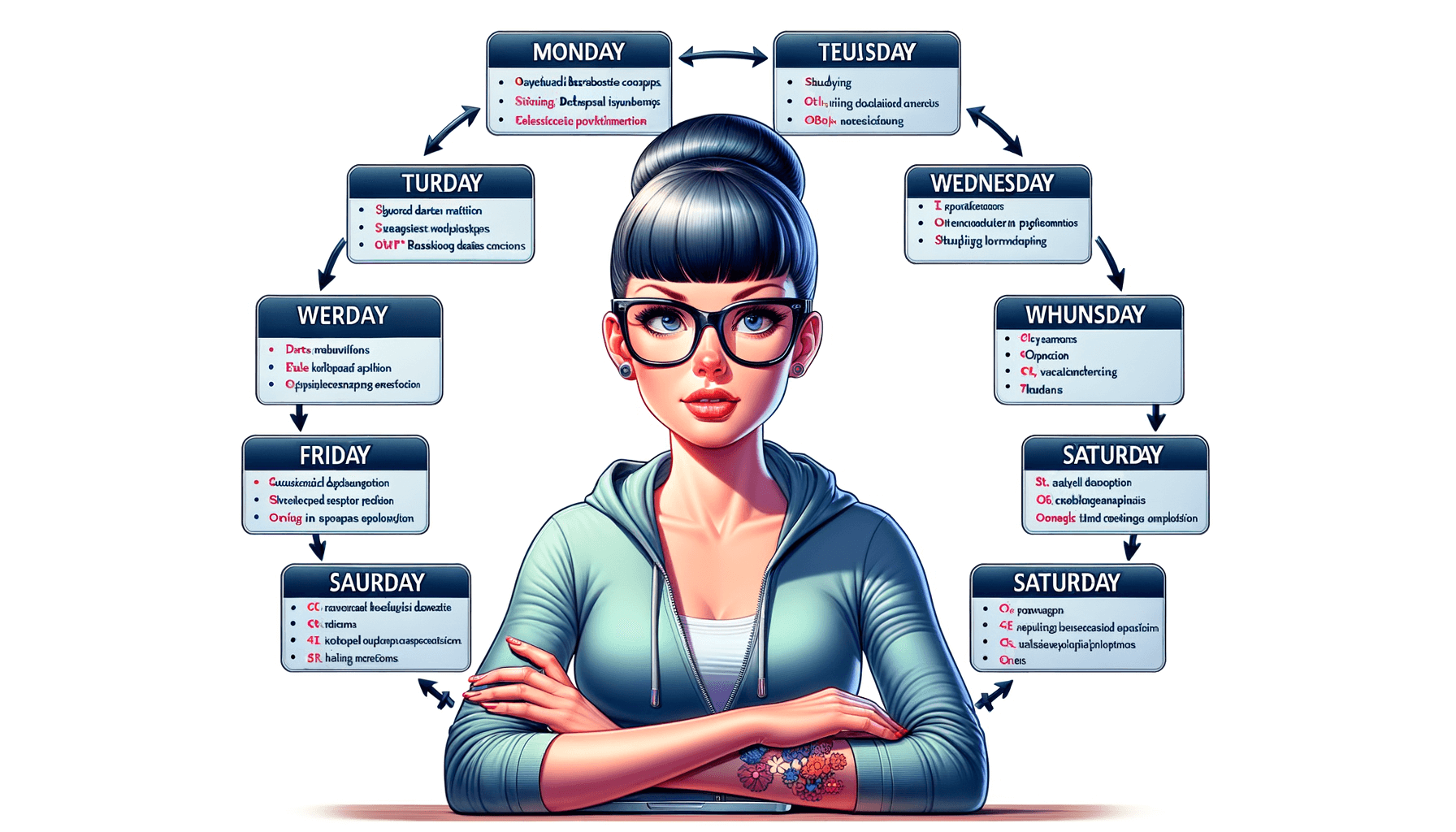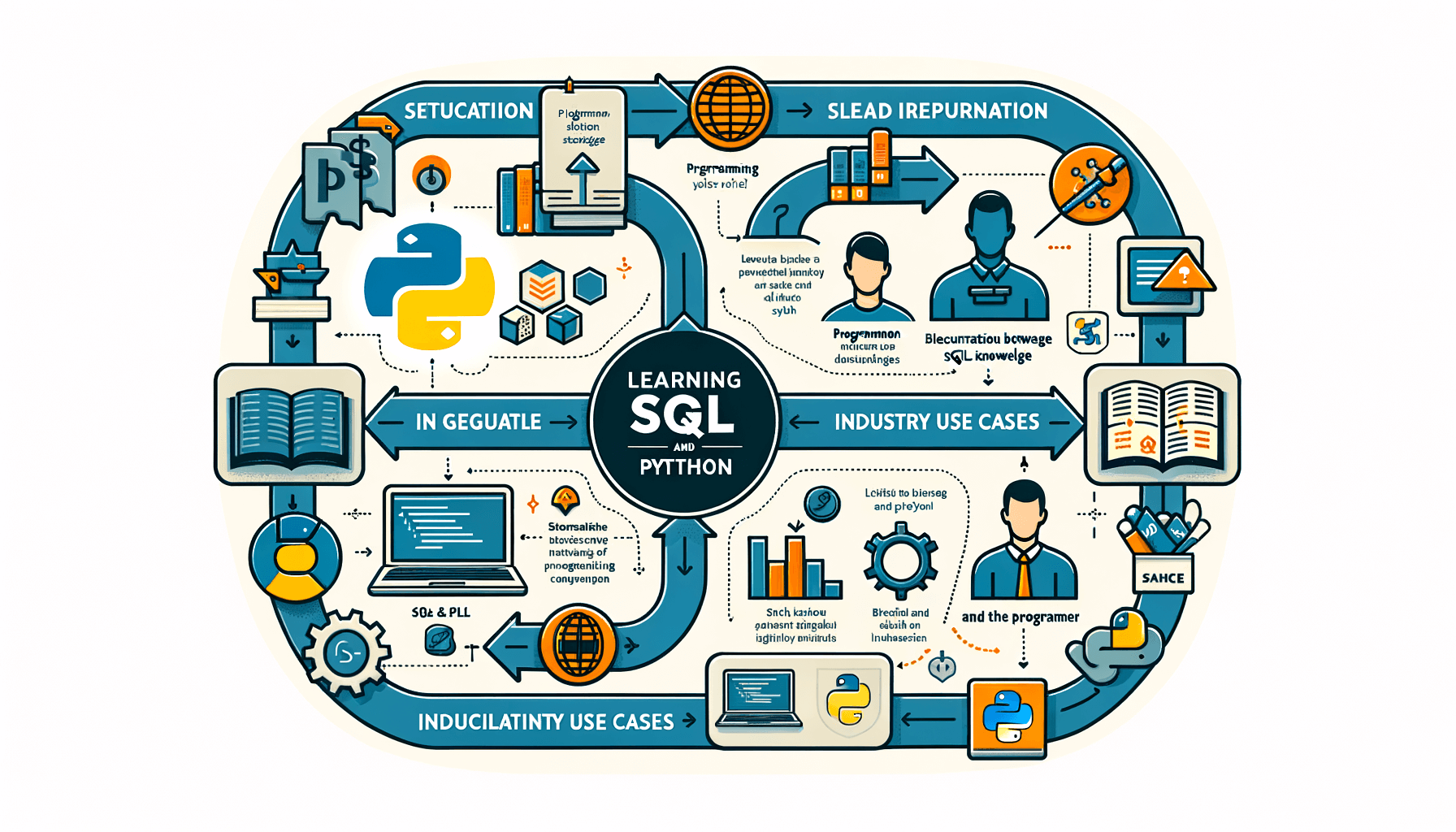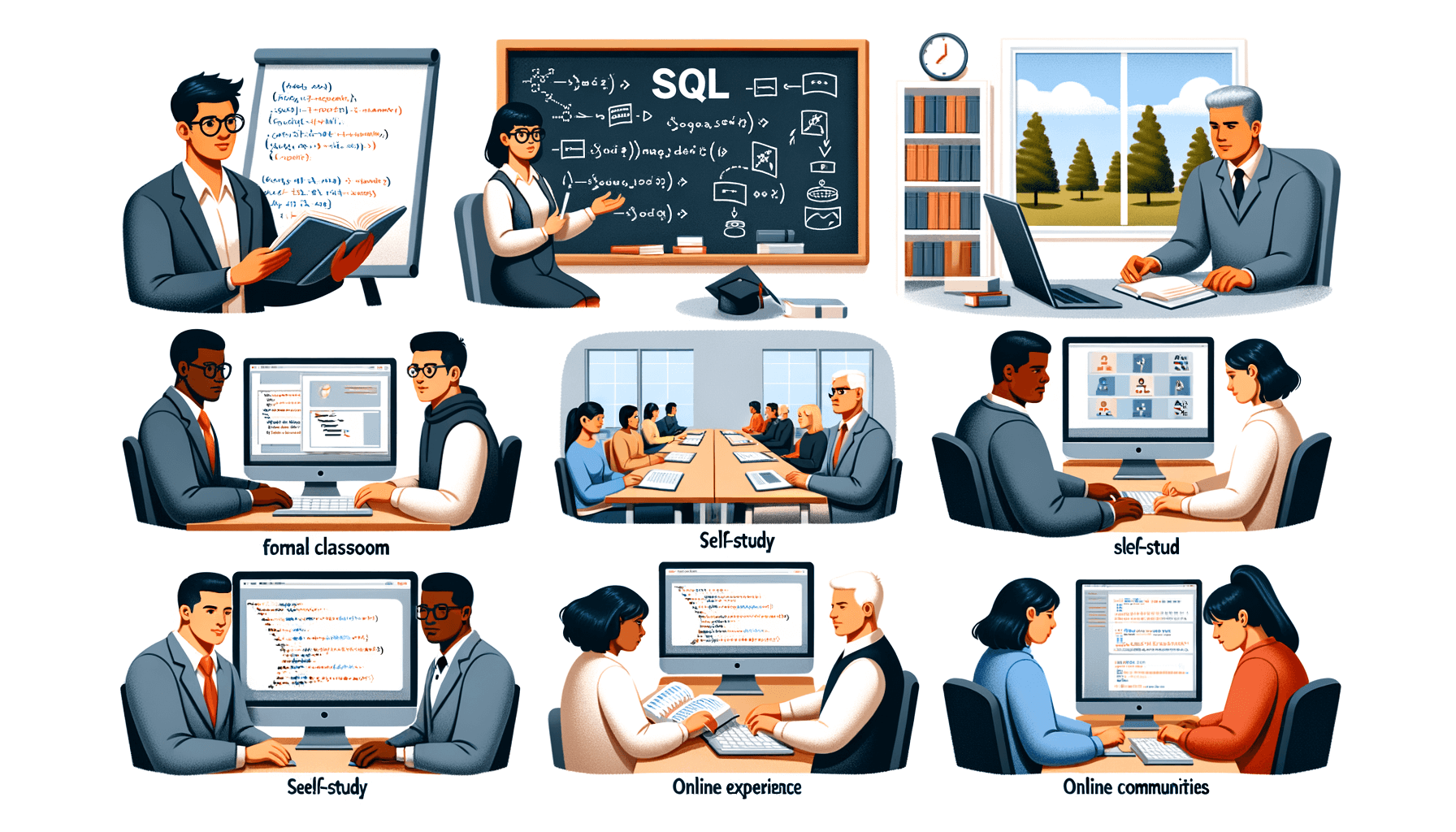A big variety of articles and resources

How Long to Learn SQL for a Job: What You Need to Know
 Sia Author and Instructor
Learn SQL
Sia Author and Instructor
Learn SQL
9 minute read
Learning SQL can open many doors in the job market. SQL, or Structured Query Language, is used to manage and analyze data in databases. It's a key skill for many tech jobs, from data analysis to software development. How long it takes to learn SQL depends on several factors like your background, the resources you use, and how much time you can dedicate to practice.
Key Takeaways
- Understanding the basics of SQL is the first step to mastering it.
- Your previous experience with programming can speed up your learning.
- Using good learning resources and methods can make a big difference.
- Regular practice is crucial for becoming good at SQL.
- SQL skills are needed for many tech jobs, making it a valuable skill to learn.
Understanding the Basics of SQL
Key Concepts and Terminology
When we start learning SQL, we first need to understand its key concepts and terminology. SQL stands for Structured Query Language, and it's used to manage and manipulate databases. Some important terms include tables, rows, columns, and queries. Knowing these basics is crucial for anyone who wants to work with databases.
Importance of SQL in the Job Market
SQL is a valuable skill in today's job market. Many companies rely on databases to store and manage their data. As a result, they need people who can use SQL to access and analyze this data. Jobs in fields like data analysis, software development, and database administration often require SQL knowledge. Learning SQL can open up many career opportunities.
Common SQL Commands
To work with SQL, we need to know some common commands. These include:
- SELECT: Retrieves data from a database
- INSERT: Adds new data to a database
- UPDATE: Modifies existing data
- DELETE: Removes data from a database
These commands form the foundation of SQL and are essential for performing basic database operations.
Mastering these basics will set a strong foundation for more advanced SQL topics and applications.
Factors Influencing the Time to Learn SQL
Prior Programming Experience
Our previous experience with programming can greatly affect how quickly we learn SQL. If we already know other programming languages, we might find SQL easier to pick up. On the other hand, if we're new to coding, it might take a bit longer to understand the concepts.
Learning Resources and Methods
The resources and methods we use to learn SQL also play a big role. There are many ways to learn, such as online courses, books, or a blog page on sqlskillz.com featuring articles, tutorials, and insights on SQL skills. Each method has its own benefits and drawbacks. Choosing the right resources can speed up our learning process.
Time Commitment and Practice
How much time we dedicate to learning and practicing SQL is crucial. Regular practice helps us remember what we've learned and improves our skills. It's important to set aside time each day or week to study and practice. The more time we invest, the faster we'll become proficient.
Consistent effort and the right resources can significantly shorten the time it takes to learn SQL.
Structured Learning Path for SQL Mastery
Beginner to Intermediate Curriculum
Starting with the basics, we need to understand fundamental SQL concepts. This includes learning about databases, tables, and basic commands like SELECT, INSERT, UPDATE, and DELETE. Mastering these basics is crucial for building a strong foundation. We should also practice writing simple queries to retrieve and manipulate data.
Advanced SQL Topics
Once we are comfortable with the basics, we can move on to more advanced topics. These include complex joins, subqueries, and window functions. Learning about indexing and query optimization can significantly improve our efficiency. We should also explore stored procedures and triggers to automate tasks within the database.
Certifications and Courses
To validate our skills, we can pursue certifications from recognized institutions. These certifications can enhance our resume and demonstrate our proficiency to potential employers. Additionally, enrolling in structured courses, either online or in-person, can provide a comprehensive learning experience. These courses often include hands-on projects that help us apply what we've learned in real-world scenarios.
Practical Applications of SQL in the Workplace
Database Management
In the workplace, SQL is essential for managing databases. We use SQL to create, modify, and delete database structures. This includes tasks like adding new tables, updating records, and removing outdated information. SQL helps us keep our data organized and accessible.
Data Analysis and Reporting
SQL is a powerful tool for data analysis and reporting. We can write SQL queries to extract specific data from large datasets. This allows us to generate reports that help in making informed business decisions. For example, we might use SQL to find sales trends over the past year or to identify the most popular products.
Integration with Other Technologies
SQL doesn't work in isolation. It integrates with various other technologies to enhance its functionality. For instance, we often use SQL with programming languages like Python or R for data analysis. Additionally, SQL can be used with web development technologies to manage backend databases. This integration makes SQL a versatile tool in the tech industry.
Mastering SQL opens up numerous opportunities in various fields, from data management to software development. Its applications are vast and essential for modern businesses.
Assessing Your SQL Proficiency for Job Readiness
Self-Assessment Techniques
To gauge our SQL skills, we can start with self-assessment. This involves reviewing the SQL concepts we've learned and testing ourselves with sample problems. Practicing regularly helps us identify areas where we need improvement. We can also compare our progress with online resources like sqlskillz.com vs udemy.com: master sql basics, perfect for beginners. learn at your own pace. no credit card required. login or sign up to start learning.
Industry-Standard Tests and Certifications
Another way to measure our SQL proficiency is through industry-standard tests and certifications. These tests are designed to evaluate our understanding of SQL in a structured manner. Certifications from recognized institutions can boost our resume and make us more attractive to employers. They often cover a wide range of topics, from basic queries to advanced database management.
Feedback from Real-World Projects
Working on real-world projects provides valuable feedback on our SQL skills. By applying what we've learned in practical scenarios, we can see how well we perform under real job conditions. This hands-on experience is crucial for building confidence and competence in SQL. Additionally, feedback from peers and mentors can guide us in refining our skills and addressing any weaknesses.
Consistent practice and real-world application are key to mastering SQL and ensuring job readiness.
Challenges and Solutions in Learning SQL
Common Learning Obstacles
When learning SQL, we often face several hurdles. One of the most common issues is understanding complex queries. These can be intimidating for beginners. Another challenge is grasping the relational database concepts, which are crucial for mastering SQL. Additionally, finding quality resources can be difficult, leading to confusion and frustration.
Effective Problem-Solving Strategies
To overcome these obstacles, we can adopt several strategies. Breaking down complex queries into smaller parts can make them easier to understand. Practicing regularly helps reinforce our understanding of relational database concepts. Moreover, using a mix of learning resources, such as books, online courses, and tutorials, can provide a well-rounded understanding of SQL.
Utilizing Community and Online Support
Engaging with the SQL community can be incredibly beneficial. Online forums, discussion groups, and social media platforms offer a wealth of knowledge and support. By participating in these communities, we can ask questions, share experiences, and learn from others. This collaborative approach can significantly enhance our learning experience.
Remember, persistence and practice are key to overcoming challenges in learning SQL. Don't hesitate to seek help and use available resources to your advantage.
Career Opportunities Requiring SQL Skills
Job Roles and Responsibilities
SQL skills open doors to various job roles in the tech industry. Some common positions include Database Administrator, Data Analyst, and Software Developer. Each role has its own set of responsibilities, but all require a solid understanding of SQL.
- Database Administrator: Manages and maintains database systems, ensuring data integrity and security.
- Data Analyst: Interprets data to help make business decisions, often using SQL to query databases.
- Software Developer: Integrates SQL into applications to manage data storage and retrieval.
Salary Expectations
The salary for SQL-related jobs can vary based on experience, location, and the specific role. Here's a quick overview:
| Job Role | Average Salary (USD) |
|---|---|
| Database Administrator | $80,000 - $120,000 |
| Data Analyst | $60,000 - $90,000 |
| Software Developer | $70,000 - $110,000 |
Future Trends in SQL-Related Careers
The demand for SQL skills is expected to grow as more companies rely on data-driven decision-making. Emerging technologies like machine learning and big data analytics also require SQL for data management. Staying updated with these trends can enhance your career prospects.
Mastering SQL not only opens up immediate job opportunities but also sets the foundation for future growth in the tech industry.
Are you looking to boost your career with SQL skills? Many job opportunities require knowledge of SQL, and we can help you get there. Our courses are designed to make learning easy and fun. Visit our website to explore our offerings and start your journey today!
Conclusion
Learning SQL for a job can seem like a big task, but with the right plan, it's doable. The time it takes to learn SQL depends on your background, how much time you can spend on it, and the job you want. Some people might get the basics in a few weeks, while others might need a few months to get really good. Remember, practice is key. The more you use SQL, the better you'll get. So, start with the basics, keep practicing, and don't be afraid to ask for help when you need it. With hard work and patience, you'll be ready for that job in no time.
Frequently Asked Questions
How long does it take to learn SQL for a job?
The time it takes to learn SQL for a job can vary. Some people might get the basics in a few weeks, while others may need a few months to feel confident.
Do I need prior programming experience to learn SQL?
No, you don't need any prior programming experience to learn SQL. It can be learned by beginners as well.
What are the key concepts I need to know in SQL?
You should know about databases, tables, and common commands like SELECT, INSERT, UPDATE, and DELETE.
Are there any good resources for learning SQL?
Yes, there are many resources like online courses, books, and tutorials that can help you learn SQL.
How can I practice SQL effectively?
You can practice SQL by working on real-world projects, using online coding platforms, or by setting up your own databases to experiment with.
What kind of jobs require SQL skills?
Jobs like data analyst, database administrator, and software developer often require SQL skills.
Related Articles

Can a programmer master SQL in a week?
13 minute read

Do I still need to learn SQL if I already know Python?
13 minute read

How did you learn SQL? Did you have a teacher?
14 minute read




